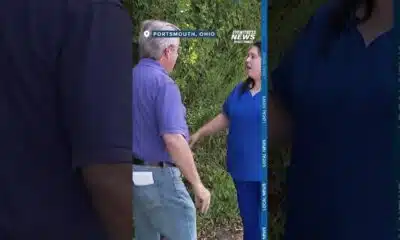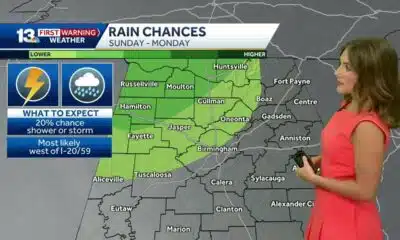News from the South - Texas News Feed
Trump sends Marines and more National Guard members to Los Angeles
SUMMARY: President Trump ordered an additional 2,000 National Guard troops and 700 Marines to Los Angeles amid protests against aggressive immigration enforcement, despite local leaders’ opposition. Initial troop deployments began Sunday, coinciding with violent protests over family separations caused by immigration raids. Monday’s demonstrations were mostly peaceful, with large rallies at City Hall and outside detention centers. California officials, including Governor Newsom and Attorney General Bonta, criticized the deployment as unnecessary and a federal overreach, filing a lawsuit to block it. Police Chief McDonnell warned that uncoordinated military involvement posed logistical challenges. The deployment marks a rare use of the National Guard without gubernatorial consent.
The post Trump sends Marines and more National Guard members to Los Angeles appeared first on www.kxan.com
News from the South - Texas News Feed
Frustrated with poor play against UTEP, Arch Manning will 'get back to basics'
SUMMARY: Texas quarterback Arch Manning and coach Steve Sarkisian acknowledge the team’s underwhelming offensive performance in a 27-10 win over UTEP. Manning completed 11 of 25 passes for 114 yards with a touchdown and an interception, frustrating fans expecting a stronger showing at home. Despite a rough first half with 10 consecutive incompletions, Manning showed flashes of promise and scored twice on the ground. Sarkisian emphasized Manning’s mental struggle rather than physical injury and expressed confidence in his growth and consistency. Manning committed to improving fundamentals and handling in-game pressure ahead of tougher matchups, including their SEC opener against Florida on Oct. 4.
The post Frustrated with poor play against UTEP, Arch Manning will 'get back to basics' appeared first on www.kxan.com
News from the South - Texas News Feed
Austin becoming FEMA-approved emergency alert authority, planning 1st test alert
SUMMARY: On Monday, Sept. 29, Austin will conduct a test of the Integrated Public Alert and Warning System (IPAWS), becoming a FEMA-approved alerting authority able to send emergency alerts via Wireless Emergency Alerts (WEA) to cell phones and Emergency Alert System (EAS) messages to TV and radio. This coordinated test at 3 p.m. will cover the city across its three counties—Travis, Hays, and Williamson. The alerts will clearly indicate a test and require no action. IPAWS allows authenticated, geotargeted emergency notifications without subscription, enhancing public safety communication. More details are available at ReadyCentralTexas.org and Ready.gov/alerts.
The post Austin becoming FEMA-approved emergency alert authority, planning 1st test alert appeared first on www.kxan.com
News from the South - Texas News Feed
La Niña now expected to last all winter
SUMMARY: For the first time this year, La Niña is now forecast to last throughout the entire winter, with NOAA’s Climate Prediction Center giving it a 54% chance for December-February. Previously, ENSO Neutral was favored for winter. La Niña occurs when sea surface temperatures in the eastern equatorial Pacific are 0.5ºC below average, typically pushing the Pacific Jet Stream north, causing drier, warmer conditions in the southern U.S. and wetter areas in the Pacific Northwest. Last winter, a weak La Niña brought a record warm December but cooler January-February, below-average rainfall, snow in Austin, and more freezes than normal. Another mild La Niña winter is expected for Central Texas.
The post La Niña now expected to last all winter appeared first on www.kxan.com
-
News from the South - West Virginia News Feed7 days ago
Protesters in D.C. flood the streets demanding an end to Trump’s military deployment
-
News from the South - Missouri News Feed7 days ago
1587 Prime gives first look at food, cocktail menu ahead of grand opening in KC
-
News from the South - Arkansas News Feed6 days ago
‘One Pill Can Kill’ program aims to reduce opioid drug overdose
-
Mississippi News Video7 days ago
Interview: Come see Baptist at WTVA Senior Health Fair
-
News from the South - Alabama News Feed6 days ago
Alabama lawmaker revives bill to allow chaplains in public schools
-
The Conversation7 days ago
How is paint made?
-
News from the South - Arkansas News Feed6 days ago
Arkansas’s morning headlines | Sept. 9, 2025
-
News from the South - Texas News Feed6 days ago
‘Resilience and hope’ in Galveston: 125 years after greatest storm in US history | Texas











































